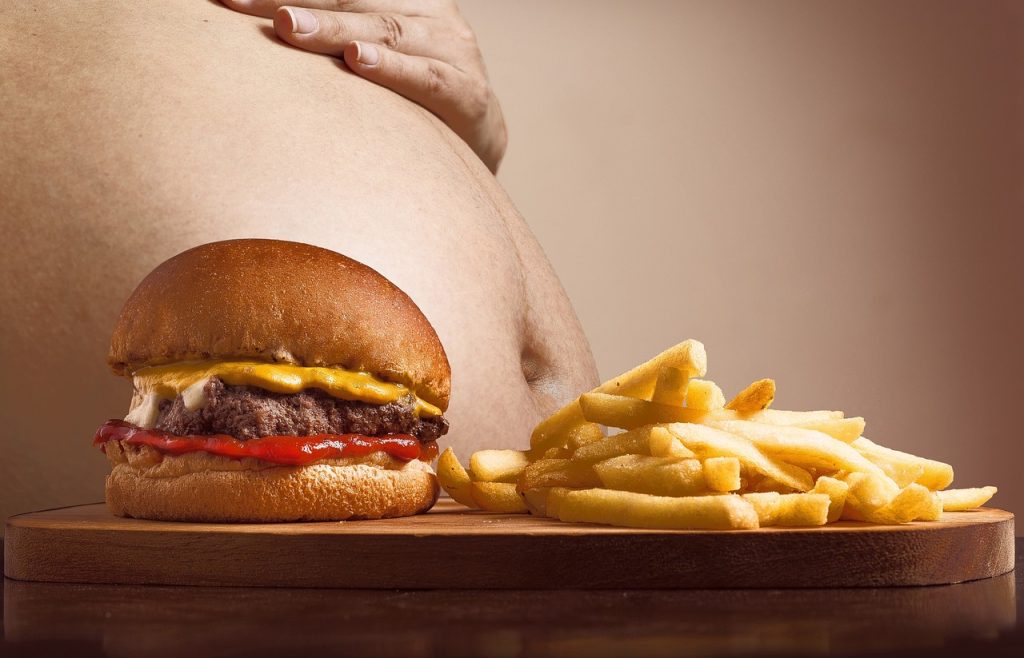Ever wonder why you feel so sluggish after binging on chips, candy and soda? The truth is, junk food is terrible for your body and brain. You may enjoy the taste of highly processed snacks and fast food, but your body sure doesn’t. All that excess sugar, fat, and salt wreak havoc on your system, zapping your energy and mood. Before you reach for another bag of chips or order a burger and fries, consider the many ways junk food harms your body. The effects go far beyond the number on the scale. From disrupting your hormones and gut health to increasing disease risk, junk food sabotages your health in insidious ways. The good news is, the solution is simple: cut back on the junk and eat real food. Your body and mind will thank you.
What Exactly Is Junk Food?
So what exactly qualifies as junk food? Basically, it’s any food high in calories, fat, salt, and sugar but low in nutrients. Think chips, candy, baked goods, fast food. While junk food may taste good going down, it does major damage to your body over time.
The empty calories
Junk food is loaded with calories but lacks nutrients like protein, fiber, vitamins and minerals that your body needs. Eating too much of it can lead to weight gain and health issues like diabetes or heart disease.
The blood sugar spike
Refined carbs and sugar in junk food cause a rapid blood sugar spike, then a crash that leaves you feeling tired and hungry again shortly after. This rollercoaster effect promotes cravings, overeating and weight gain.
Inflammation central
Junk food contains high amounts of inflammatory fats and ingredients like refined carbs, sugar, and trans fats. Chronic inflammation can lead to disease and aging in the body.
Gut trouble
Too much junk food wreaks havoc on your gut health and the good bacteria in your microbiome. It feeds the harmful bacteria, reduces gut diversity and can lead to issues like leaky gut syndrome and other digestive problems.
The impacts of junk food add up over time and the more you eat, the more harm is done. An occasional indulgence won’t kill you, but for the sake of your health, limit junk food as much as possible. Your body will thank you for it!
The Impact of Junk Food on Your Health
Eating too much junk food can seriously damage your health over time. Here are some of the major impacts of a junk food-heavy diet:
Weight Gain and Obesity
When you eat junk food high in sugar, fat and calories but low in nutrients, it’s easy to gain weight. Those extra pounds put you at risk for obesity and health issues like diabetes and heart disease. To avoid weight gain, cut back on junk food and focus on nutritious whole foods like fruits and vegetables, lean proteins and whole grains.
Nutritional Deficiencies
Junk food lacks the vitamins and minerals you need to stay healthy. Eating too much of it can lead to deficiencies in nutrients like calcium, vitamin D, iron and folate. These deficiencies can cause conditions such as anemia, bone loss and impaired immune function. A balanced diet with lots of nutritious foods is the best way to get all the nutrients you need.
Risk of Disease
A diet high in junk food, especially fast food, has been linked to a higher risk of health issues such as:
- Heart disease and high blood pressure from excess salt, fat and cholesterol
- Type 2 diabetes and insulin resistance from excess sugar and calories
- Certain cancers such as colorectal cancer
- Non-alcoholic liver disease from excess sugar and fat
The effects of a poor diet accumulate over time and can be life-threatening. But by cutting back on junk food and focusing on nutritious whole foods, you can significantly lower your risk of disease and improve your health. Your body will thank you!
Junk Food and Weight Gain
Junk food is highly processed, high in calories but low in nutrients. Eating too much of it can lead to weight gain and health issues. Here are some of the ways junk food negatively impacts your body:
Weight Gain
Junk food is packed with empty calories, usually from refined sugars and processed carbohydrates with little protein or healthy fats. These calories don’t satisfy you, so you end up eating more to feel full. The excess calories get stored in your body as fat, contributing to weight gain over time.
- Studies show people who eat more processed and fast foods gain more weight and have a higher risk of obesity. Switching to a whole foods diet with lean proteins, fresh fruits and vegetables, whole grains, and healthy fats can help you lose weight and keep it off.
High Blood Pressure and Heart Disease
Junk food is loaded with sodium, saturated fat and trans fat – all of which raise your risk of high blood pressure, heart disease and other health issues.
- Sodium causes your body to retain water, which puts strain on your heart and blood vessels. Limiting sodium can help lower blood pressure.
- Saturated and trans fats raise “bad” LDL cholesterol levels in your blood. Too much LDL cholesterol builds up in your arteries, narrowing and hardening them over time. This can lead to heart disease, heart attacks and strokes.
Type 2 Diabetes Risk
Junk food spikes your blood sugar, which over time may lead to insulin resistance and type 2 diabetes.
- Refined carbohydrates, like white flour and sugar, are quickly broken down into sugar in your bloodstream. Your pancreas releases insulin to clear the sugar from your blood, and over time may not be able to keep up with frequent sugar surges.
- Losing excess weight, eating less processed food and exercising regularly can help control blood sugar levels and reduce diabetes risk.
Junk food may seem like an easy and tasty option, but it does far more harm than good. Choose whole, nutritious foods instead for your health and well-being. Making better choices today will have long-term benefits for years to come.
How Junk Food Affects Your Brain
Junk food is terrible for your brain. Here are a few reasons why:
It’s addictive
Junk food is engineered to be hyper-palatable, meaning it’s designed to taste really, really good. Food companies spend millions to find the perfect combination of fat, sugar, and salt that keeps you coming back for more.
These addictive ingredients activate the reward centers in your brain, releasing feel-good chemicals like dopamine that make you crave more and more. This can lead to unhealthy eating habits and even food addiction over time.
It impairs memory and cognition
A diet high in junk food, sugar, and processed carbs can negatively impact your memory and thinking skills. Studies show people who eat a lot of junk food score lower on cognitive tests and have a higher risk of cognitive decline as they age.
Sugary and fatty foods cause inflammation in the brain and spur insulin resistance, both of which are detrimental to your neurons and synapses. They also deplete nutrients that are essential for brain health like omega-3 fatty acids, antioxidants, and B vitamins.
It changes your brain structure
Junk food may alter the actual structure and connectivity in your brain. Research shows people with obesity and metabolic syndrome tend to have differences in areas of the brain involved in reward, impulse control, and decision making.
These changes may make it harder to resist temptation and break unhealthy eating habits. The good news is some of these effects seem to be reversible by switching to a balanced, nutritious diet.
It leads to mental health issues
A poor diet is associated with a higher risk of depression and anxiety. While junk food may temporarily boost your mood, the subsequent crash can worsen symptoms of depression and make you feel more anxious and irritable.
A balanced diet with plenty of whole foods like fruits and vegetables, lean proteins, and whole grains provides the nutrients your brain needs to regulate mood and support better mental wellbeing. Ditch the junk food and your mind and body will thank you.
Breaking the Junk Food Habit: Tips to Limit Cravings
Breaking the junk food habit is challenging but rewarding. Here are some tips to help limit those unhealthy cravings:
Drink water
Staying hydrated keeps you feeling full and reduces appetite. Aim for 6-8 glasses of water per day. Drink a glass of water when a craving strikes—you may find the urge passes.
Get enough sleep
Lack of sleep can increase cravings and snacking. Most adults need 7-9 hours of sleep per night to feel rested. Go to bed a bit earlier and avoid screens before bed to establish a good sleep routine.
Eat regular meals
Don’t skip meals or go long periods without eating. Have 3 balanced meals per day with snacks in between to keep you fueled and prevent cravings from building up. Focus on lean proteins, high-fiber whole grains, fruits and vegetables.
Find alternatives
When a craving hits, do something to distract yourself like going for a walk or doing some light exercise. Call a friend, read a book or find a hobby to keep your mind occupied. The more you avoid giving in, the sooner the craving will pass.
Limit temptation
Don’t keep junk food at home or work. Out of sight, out of mind. Ask family and friends to avoid offering you unhealthy options. The more you practice self-control, the stronger your willpower becomes. With time, the cravings will subside.
Breaking habits is challenging, but making healthy lifestyle changes will boost your mood and overall wellbeing. Stay committed and be kind to yourself. Every small victory and better choice moves you closer to overcoming cravings for good. You’ve got this! Focus on progress, not perfection.
Conclusion
So the next time you’re reaching for that candy bar or bag of chips, think twice. While junk food may satisfy your cravings in the moment, the long term effects on your health are real. Your body deserves better. You only get one body in this lifetime, so make the choice to nourish it with real food. Kick the junk food habit and choose whole foods instead – your body and mind will thank you for it. Life’s too short to waste it feeling tired, sick and overweight. Take control of your health and make the commitment to cut out the junk. You’ve got this! Stay focused on your goal and surround yourself with a strong support system. Your health is worth fighting for, so fight the good fight and choose real food. You’ll be glad you did.





